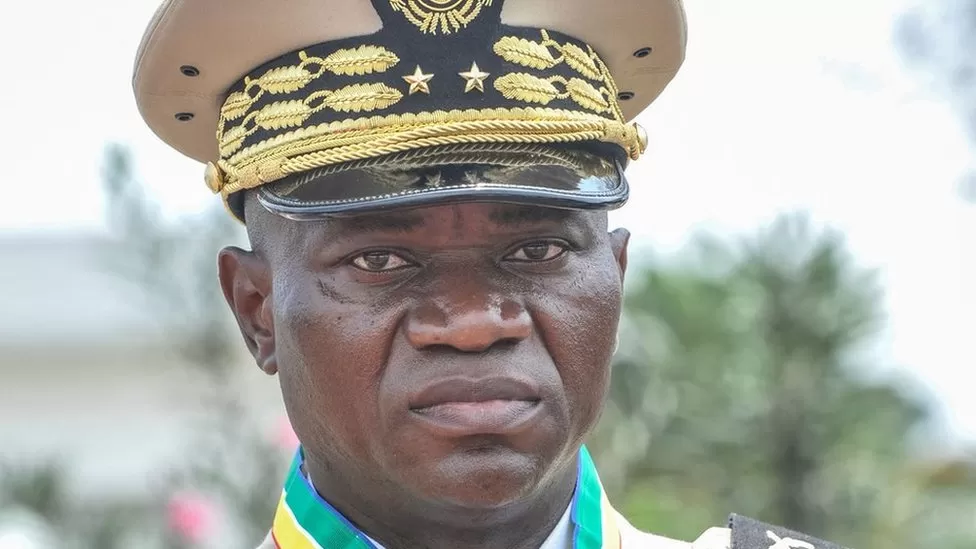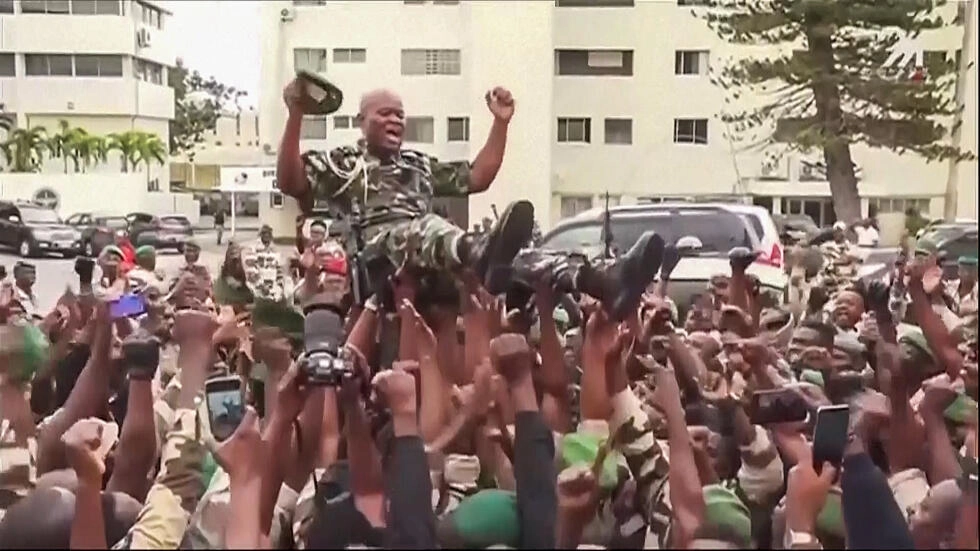
The 48-year-old general certainly appears to to be a man of the people as he’s held aloft by his soldiers, but to many, he’s an unexpected leader.
Just five years ago, he barely existed in Gabon’s public consciousness, having spent 10 years outside the country after being dismissed from the inner circle of the Bongo family, who until Wednesday had ruled Gabon for almost 56 years.
On Gen Nguema’s return, he quietly rose to the army’s highest position. Here he dedicated his days to maintaining President Ali Bongo’s regime.
Gabon’s new strongman was born in Gabon’s province of Haut-Ogooué. The area is a stronghold of the Bongo family and some even say that Gen Nguema is Ali Bongo’s cousin.
Gen Nguema took after his father and pursued a career in the military. At a very young age, he joined Gabon’s powerful Republican Guard unit, having first trained at Morocco’s prestigious Meknes Royal Military Academy.
The ambitious young officer quickly attracted the attention of the military top brass and became an assistant to then-president Omar Bongo, who was Ali Bongo’s father.
It is said Gen Nguema was extremely close to Omar Bongo – he served the autocrat until his death in 2009.
“He’s someone who wasn’t expected [to lead Gabon] at this time,” Edwige Sorgho-Depagne, an analyst of African politics who works for Amber Advisers, told BBC’s Newsday programme.
“In the 2000s, he was far from the country for some time… he was almost forgotten.”
When Ali Bongo took over from his father in 2009, Gen Nguema was dismissed from his job. He began what local media portrays as an “exile”, serving almost 10 years as an attaché to the Gabonese embassies in Morocco and Senegal.

The industrious military man reappeared on Gabon’s political scene in 2018, when he replaced the president’s step-brother as the Republican Guard’s intelligence chief.
After just six months in the job, Gen Nguema was promoted to head of the Republican Guard. He initiated reforms to make the unit more effective in its fundamental mission: maintaining the regime.
A former close collaborator told French news agency AFP that the general was “a man of consensus, who never raises his voice, who listens to everyone and systematically seeks compromise”.
Shortly after he took on the new role, Gen Nguema launched the “clean hands” operation, which set out to tackle alleged state-led embezzlement.
However, Gen Nguema was himself accused of hoarding public money.
In a 2020 investigation, US anti-corruption organisation OCCRP alleged that Gen Nguema and the Bongo family had purchased expensive property in the United States with stashes of cash. The general was said to have spent $1m (£790,000) on three properties.
Nguema’s response to the report? “I think whether in France or in the United States, a private life is a private life that [should be] respected”.
Barely eight months ago, Gabon’s national news agency reported that Gen Nguema publicly reaffirmed his loyalty to Ali Bongo’s presidency, which had stretched for 14 years.
But on Wednesday, just hours after Ali Bongo was announced as the winner of a disputed presidential election, the military announced it was annulling the results and taking over.
With the president under house arrest, General Brice Clothaire Oligui Nguema was named Gabon’s transitional leader.
The general told France’s Le Monde newspaper that Gabonese people had had enough of Ali Bongo’s rule, and that the president should not have run for a third term.
“Everyone talks about this but no one takes responsibility,” he said. “So the army decided to turn the page.”
The UN, the African Union and France have condemned the coup – the eighth to take place in West and Central Africa since 2020.
But Gen Nguema seems to have won over large parts of the public. He’s also succeeded in uniting the army, which is dividing along ethnic lines.
As a man who has been accused of corruption and has spent most his career in the Bongo’s inner circle, he may not turn out to be the fresh start the Gabonese people hope he will be.
He will, however, be etched in the country’s history books as the man that “turned the page”.





















